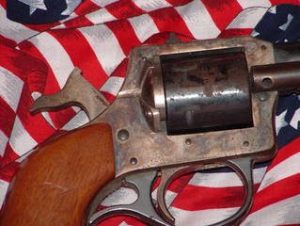 In recent years, laws regarding the Possession and Use of Marijuana have been changing throughout the country. This is true in the State of Illinois. In 1931, The Illinois Legislature made the recreational use of marijuana illegal. This legislation was part of a national trend which made the use of marijuana illegal nationally. In recent years, a new national trend has swept throughout the country which is having the opposite effect on the use of Marijuana. This trend clearly appears to be more accepting of the medical and recreational use of Marijuana. This national trend has swept into Illinois as well. In 2016, the Illinois Legislature decriminalized the possession of small amounts of Marijuana in Illinois. If you are caught with 10 grams or less of Marijuana, you will no longer be placed under arrest and subject to criminal prosecution and criminal penalties. In 2016 the State of Illinois made the possession of 10 grams or less of Marijuana a Municipal Ordinance Violation which only carries a civil penalty. The City of Chicago decriminalized the possession of small amounts of Marijuana in 2012.
In recent years, laws regarding the Possession and Use of Marijuana have been changing throughout the country. This is true in the State of Illinois. In 1931, The Illinois Legislature made the recreational use of marijuana illegal. This legislation was part of a national trend which made the use of marijuana illegal nationally. In recent years, a new national trend has swept throughout the country which is having the opposite effect on the use of Marijuana. This trend clearly appears to be more accepting of the medical and recreational use of Marijuana. This national trend has swept into Illinois as well. In 2016, the Illinois Legislature decriminalized the possession of small amounts of Marijuana in Illinois. If you are caught with 10 grams or less of Marijuana, you will no longer be placed under arrest and subject to criminal prosecution and criminal penalties. In 2016 the State of Illinois made the possession of 10 grams or less of Marijuana a Municipal Ordinance Violation which only carries a civil penalty. The City of Chicago decriminalized the possession of small amounts of Marijuana in 2012.
In 2013, the Illinois Legislature enacted the Compassionate Use of Medical Cannabis Pilot Program Act. This Act legalized the use of Marijuana for medical purposes under certain tight regulations. When the Medical Marijuana Act was enacted in 2013, it was considered one of the most restrictive and prohibitive Medical Marijuana programs in the United States. Recently, Illinois Governor Bruce Rauner signed into law numerous changes to the Medical Marijuana program which have loosened many of the restrictions and made it possible for more people to be able to use Medical Marijuana legally in the State of Illinois.
The recent changes to the Medical Marijuana program in Illinois allows doctors to prescribe Medical Marijuana in place of opioids, for a short period of time, for patients in need of relief from pain. This change to the Medical Marijuana program is an attempt to stop the opioid epidemic from spreading. Another change to the Medical Marijuana program in Illinois removes the requirement that an applicant has to submit to a background search which required that a sample of their fingerprints be submitted with the application. This will have the effect of speeding up the process for being approved to use Medical Marijuana in Illinois. Prior to the recent changes to the Medical Marijuana program, it could take three to four months for an application to be approved. This will also make it possible for patients with a criminal record to be able to legally obtain and use Medical Marijuana. With the recent changes, once your application is accepted and payment is received, you can legally purchase Medical Marijuana at a state approved Medical Marijuana Dispensary by simply showing them your receipt from the Illinois Department of Public Health, the agency that is charged with administering the Medical Marijuana program in Illinois.
 The right to a jury trial is one of the fundamental constitutional principles that applies to all criminal cases. If you are accused of a crime that carries a punishment of incarceration for more than 6 months, you have a constitutional right to a trial by a jury. The Illinois Constitution also guarantees you the right to a jury trial in a criminal case. Let’s talk a little bit about what a jury trial is and what happens in a typical jury trial in Illinois.
The right to a jury trial is one of the fundamental constitutional principles that applies to all criminal cases. If you are accused of a crime that carries a punishment of incarceration for more than 6 months, you have a constitutional right to a trial by a jury. The Illinois Constitution also guarantees you the right to a jury trial in a criminal case. Let’s talk a little bit about what a jury trial is and what happens in a typical jury trial in Illinois. Chicago Criminal Lawyer Blog
Chicago Criminal Lawyer Blog











 Every New Year brings us new laws and new regulations that impact the criminal law and the way we live. On January 1, 2019, several changes to the Illinois gun laws went into effect which make it a little more difficult for people to buy a gun and makes it easier for law enforcement personnel to take guns away from people that may be deemed dangerous. The final change is an attempt to stem the rising tide of mass shootings. The changes to the Illinois gun laws are set forth below.
Every New Year brings us new laws and new regulations that impact the criminal law and the way we live. On January 1, 2019, several changes to the Illinois gun laws went into effect which make it a little more difficult for people to buy a gun and makes it easier for law enforcement personnel to take guns away from people that may be deemed dangerous. The final change is an attempt to stem the rising tide of mass shootings. The changes to the Illinois gun laws are set forth below. In general, there are limits to the amount of time that state prosecutors have to bring criminal charges before they are barred by the Statute of Limitations from filing any criminal charges. If the state files criminal charges beyond the time limit, or the Statute of Limitations, the person charged with the crime can appear in court and get the criminal charges dismissed.
In general, there are limits to the amount of time that state prosecutors have to bring criminal charges before they are barred by the Statute of Limitations from filing any criminal charges. If the state files criminal charges beyond the time limit, or the Statute of Limitations, the person charged with the crime can appear in court and get the criminal charges dismissed. If you are charged with a felony criminal offense in Illinois, you need to know what you are being charged with and what class felony that criminal charge is classified as. Generally, felonies in Illinois are categorized into one of the four classes of felonies in Illinois. Depending on which class your felony is classified as being, the potential penalty will will vary depend on what class felony your crime falls into. Murder is not considered to be part of the four classes of felonies in Illinois. Murder is considered its own special class.
If you are charged with a felony criminal offense in Illinois, you need to know what you are being charged with and what class felony that criminal charge is classified as. Generally, felonies in Illinois are categorized into one of the four classes of felonies in Illinois. Depending on which class your felony is classified as being, the potential penalty will will vary depend on what class felony your crime falls into. Murder is not considered to be part of the four classes of felonies in Illinois. Murder is considered its own special class. If you are charged with a Misdemeanor crime in Illinois, you need to understand what a Misdemeanor is and what the implications could be for your future. A Felony criminal charge is much more severe than a Misdemeanor criminal charge. But that doesn’t mean that a Misdemeanor is not a big deal. While whether you are charged with a Misdemeanor or a Felony may make all the difference in the world you need to understand what a Misdemeanor is and what you are looking at when you go to Court.
If you are charged with a Misdemeanor crime in Illinois, you need to understand what a Misdemeanor is and what the implications could be for your future. A Felony criminal charge is much more severe than a Misdemeanor criminal charge. But that doesn’t mean that a Misdemeanor is not a big deal. While whether you are charged with a Misdemeanor or a Felony may make all the difference in the world you need to understand what a Misdemeanor is and what you are looking at when you go to Court. I frequently receive phone calls from clients who are facing their second DUI. Many times, they do not understand how serious their case is and what they are facing. If you have been arrested and are charged with a DUI, and it’s your second DUI, you need to understand how serious this case could be and what the long-term implications to you could be. Not only could it cost you lots of money, but you could be labeled a convicted criminal for the rest of your life, end up in jail, sentenced to Probation, and lose your license for a very long time. Let me explain to you what makes a second DUI so serious.
I frequently receive phone calls from clients who are facing their second DUI. Many times, they do not understand how serious their case is and what they are facing. If you have been arrested and are charged with a DUI, and it’s your second DUI, you need to understand how serious this case could be and what the long-term implications to you could be. Not only could it cost you lots of money, but you could be labeled a convicted criminal for the rest of your life, end up in jail, sentenced to Probation, and lose your license for a very long time. Let me explain to you what makes a second DUI so serious. In recent years, laws regarding the Possession and Use of Marijuana have been changing throughout the country. This is true in the State of Illinois. In 1931, The Illinois Legislature made the recreational use of marijuana illegal. This legislation was part of a national trend which made the use of marijuana illegal nationally. In recent years, a new national trend has swept throughout the country which is having the opposite effect on the use of Marijuana. This trend clearly appears to be more accepting of the medical and recreational use of Marijuana. This national trend has swept into Illinois as well. In 2016, the Illinois Legislature decriminalized the possession of small amounts of Marijuana in Illinois. If you are caught with 10 grams or less of Marijuana, you will no longer be placed under arrest and subject to criminal prosecution and criminal penalties. In 2016 the State of Illinois made the possession of 10 grams or less of Marijuana a Municipal Ordinance Violation which only carries a civil penalty. The City of Chicago decriminalized the possession of small amounts of Marijuana in 2012.
In recent years, laws regarding the Possession and Use of Marijuana have been changing throughout the country. This is true in the State of Illinois. In 1931, The Illinois Legislature made the recreational use of marijuana illegal. This legislation was part of a national trend which made the use of marijuana illegal nationally. In recent years, a new national trend has swept throughout the country which is having the opposite effect on the use of Marijuana. This trend clearly appears to be more accepting of the medical and recreational use of Marijuana. This national trend has swept into Illinois as well. In 2016, the Illinois Legislature decriminalized the possession of small amounts of Marijuana in Illinois. If you are caught with 10 grams or less of Marijuana, you will no longer be placed under arrest and subject to criminal prosecution and criminal penalties. In 2016 the State of Illinois made the possession of 10 grams or less of Marijuana a Municipal Ordinance Violation which only carries a civil penalty. The City of Chicago decriminalized the possession of small amounts of Marijuana in 2012. I frequently receive phone calls from clients who have received a speeding ticket for driving at a high rate of speed. While speaking with these clients, it is not uncommon for me to find out that they were driving at such a high rate of speed that I need to explain to them that what they are charged with is not your typical, run-of-the-mill, speeding ticket. I end up having to explain to them that what they are facing is a criminal charge known as Aggravated or Excessive Speeding that carries a possible jail sentence in County Jail. Let me explain how an Aggravated or Excessive Speeding ticket in Illinois can land you in jail and lead to a criminal conviction that will appear on your record in a routine background search.
I frequently receive phone calls from clients who have received a speeding ticket for driving at a high rate of speed. While speaking with these clients, it is not uncommon for me to find out that they were driving at such a high rate of speed that I need to explain to them that what they are charged with is not your typical, run-of-the-mill, speeding ticket. I end up having to explain to them that what they are facing is a criminal charge known as Aggravated or Excessive Speeding that carries a possible jail sentence in County Jail. Let me explain how an Aggravated or Excessive Speeding ticket in Illinois can land you in jail and lead to a criminal conviction that will appear on your record in a routine background search. On Tuesday, Illinois Governor Bruce Rauner, signed into law a measure that drastically expands the Illinois Medical Marijuana Program. The main focus of the expanded Medical Marijuana legislation is to attack the massive opioid epidemic which led to the loss of almost 2,000 lives in Illinois in 2016, and roughly 72,000 people throughout the country.
On Tuesday, Illinois Governor Bruce Rauner, signed into law a measure that drastically expands the Illinois Medical Marijuana Program. The main focus of the expanded Medical Marijuana legislation is to attack the massive opioid epidemic which led to the loss of almost 2,000 lives in Illinois in 2016, and roughly 72,000 people throughout the country. In response to the dramatic rise in the number of mass shootings around the country, earlier this year the Illinois Legislature began working on legislation aimed at trying to stop mass shootings from happening in Illinois. As a result, on July 16h, 2018, Illinois governor Bruce Rauner signed into law the Firearms Restraining Order Act which allows for petitions to be filed in court to have a no contact order issued against someone deemed to be a threat to themselves or to others. The new law is commonly called the “Red Flag” bill. It would allow family members, police and others to seek an Order Protection in Court to take away the guns from someone found to pose “an immediate and present danger” to themselves or to others.
In response to the dramatic rise in the number of mass shootings around the country, earlier this year the Illinois Legislature began working on legislation aimed at trying to stop mass shootings from happening in Illinois. As a result, on July 16h, 2018, Illinois governor Bruce Rauner signed into law the Firearms Restraining Order Act which allows for petitions to be filed in court to have a no contact order issued against someone deemed to be a threat to themselves or to others. The new law is commonly called the “Red Flag” bill. It would allow family members, police and others to seek an Order Protection in Court to take away the guns from someone found to pose “an immediate and present danger” to themselves or to others.